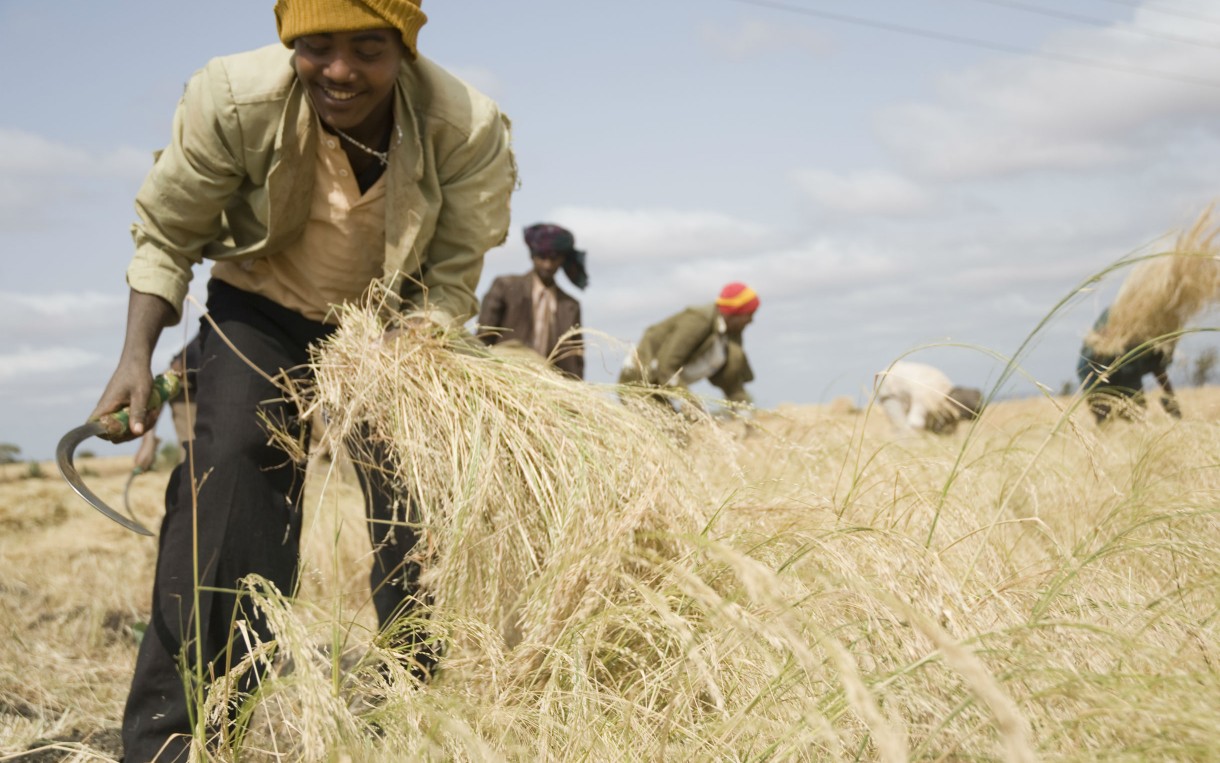Working in some of the most prestigious investment banks in London for 17 years no one thought Yonas Alemu would return to his native Ethiopia. The least of the expectations was him establishing a successful health products company, Lovegrass Ethiopia. The company processes Ethiopian-grown teff into a variety of healthy food products. Teff is an ancient grain grown in Ethiopia famed for its huge pack of health benefits. It is high in fibre, is gluten-free, and is also loaded with vitamins, minerals, and protein.
Alemu’s agro-processing company produces Teff-based pasta, breakfast cereals and pancake mix among other products. The investment banker turned entrepreneur in agro-processing baffles many people as to why he gave up such a lucrative career for industrialization.
Table of Contents
Who is Yonas Alemu?
Yonas Alemu is the founder and director of Lovegrass Ethiopia. He was born and raised in an agricultural hamlet in the interiors of Ethiopia. He has a vivid recollection of his childhood waking up early and heading out to teff fields for many years. He broke this cycle when he won a scholarship for college in the UK and studied finance. For 17 years, he worked with reputable investment banks in Britain, J.P. Morgan and Credit Susie among them.
Why Did Yonas Alemu Leave the UK to Start Lovegrass Ethiopia?
In 2014, the Ethiopian entrepreneur bumped into teff in a London store specializing in health products. However, it broke his heart that the teff on the shelves from the US where American farmers commercially grow it.

Ethiopian Teff. Photo/First Person-Oxfam America
This bugged him and he finally decided to launch a company selling Ethiopian health products in the international market. His thinking was informed by the firsthand experience of the hard labour that Ethiopian teff farmers put to have it on the shelves. Working in his own company back home was also in line with his desire to return home and help his local community.
“It has always been a lifelong desire to go back to Ethiopia and work with the community I left behind,” he tells How We Made It in Africa in a phone interview. He took his time and researched the products he could produce on a commercial scale from teff and it took two years. To launch Lovegrass Ethiopia, he resigned from his position at Credit Suisse and returned to Ethiopia in 2016.
How Did Yonas Alemu Set Up Lovegrass Ethiopia?
Alemu secured land on the outskirts of the Ethiopian capital, Addis Ababa and embarked on construction. As the project neared completion, political unrest rocked this East African nation and he had to pause and return to the UK. At least, his family; his wife and kids eagerly waited for him. He chose to export teff from Ethiopia and process it in the UK while waiting for the political situation to change. It was expensive but it got his dream going. Immediately things calmed down, and he flew back home in 2021 and imported all the machinery required for Lovegrass Ethiopia to keep running.
In retrospect, Alemu says that manufacturing in Ethiopia is far less expensive than manufacturing in the UK. He cites the labour and power costs as the deal breakers. Besides, the decision to produce in Ethiopia is not just a business decision but also a component of the company’s larger aim to help the nation industrialized. Local manufacturing businesses frequently deal with a lack of foreign currency, heavy bureaucracy, logistics issues, and instability in some areas of the nation. With him on board, he instigates change and, hopefully, more investors will follow suit.
Lovegrass has long-term supply contracts with farmers whom it purchases its raw ingredients from. Further, it has employed over 50 people despite not manufacturing its pasta in Ethiopia yet. Nevertheless, Yonas Alemu is optimistic that, this will soon move from the UK to Ethiopia.

Teff, which Lovegrass Ethiopia Uses to make health products. Photo/Enrich Argo Industry
What is the Success Story of Lovegrass Ethiopia So far?
The biggest success story Yonas Alemu has with Lovegrass Ethiopia is penetrating Europe as its main market. All of its teff-based health products are in the UK, Sweden, Ireland, Germany and France. Lovegrass and independent retailers each receive around half of the company’s sales. According to Alemu, numerous major European shops started selling the company’s products after it won some food industry accolades in the UK and France. Today, be sure to find Lovegrass Ethiopian products in Ocado, Selfridges, Whole Foods, and Planet Organic.
Moreover, he has a sizeable market share back in Ethiopia and has created a dozen employment opportunities directly and indirectly. Alemu’s aspiration in future is to push his products in the Middle East and the US.








